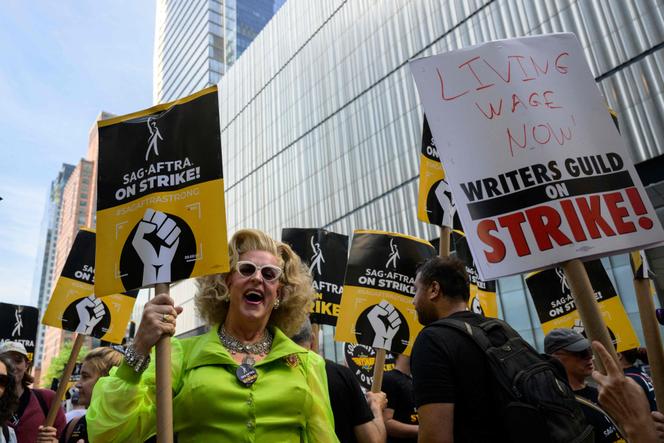


After 148 days on strike, the 11,500-odd members of the Writers Guild of America began voting on Monday, October 2, to ratify the agreement reached on September 24 between their union and the production studios on their pay and working conditions for the next three years. The approval process is open until October 9.
The trade press reported that the agreement was going to be adopted. Screenwriters are satisfied. Calling for a return to work on September 27, the Writers Guild of America described as "exceptional" the agreement reached with the Alliance of Motion Picture and Television Producers (AMPTP), which represents producers; studios (Paramount, Sony, Disney); and platforms (Amazon, Netflix and Apple). The victorious tone of the union contrasted with the modesty of declarations made in 2008 following a strike that had lasted three months. At that time, before calling for the resumption of work, the union had merely announced that its negotiators had "done their best."
The context was different in 2008: Screenwriters had not yet anticipated the digital revolution, and the industry was all-powerful. In this year's strike, the organization mobilized the workers to defend the profession against "existential threats." The fighting spirit paid off, especially as the major production studios are themselves in a difficult situation in the face of the streaming platforms. The union managed to maintain cohesion, with mavericks like actress-director Drew Barrymore and political comedian Bill Maher, who wanted to resume their solo shows, quickly falling into line.
Following the announcement of the compromise, a number of screenwriters expressed satisfaction on social media. "Wow! This WAG deal is INCREDIBLE," tweeted writer and comic Robin Thede. "EXQUISITE! "echoed Natasha Rothwell, who worked on the engaging comedy Insecure. Many felt that their profession had been lifted out of the abyss. "When we started this, we had sort of a mission statement, which was, 'We want writers to be able to make enough money to live and work in Los Angeles,'" Justin Halpern, co-writer of the popular comedy Abbott Elementary (ABC), told the Los Angeles Times. "Every one of these policies and proposals is there to make sure that writers can make their year, because that was disappearing," he added.
Screenwriters went on strike on May 2, with a set of demands reflecting several years of frustration that had been sidelined by the Covid pandemic. They demanded higher pay as salaries have stagnated for 10 years while streaming has increased the lifespan of works and jeopardized the collective creative process in writers' rooms, which the producers want to reduce in size. Last but not least, screenwriters wanted to curb the use of artificial intelligence in scriptwriting as well as the use of their original writing by machines in algorithm development.
You have 48.52% of this article left to read. The rest is for subscribers only.
